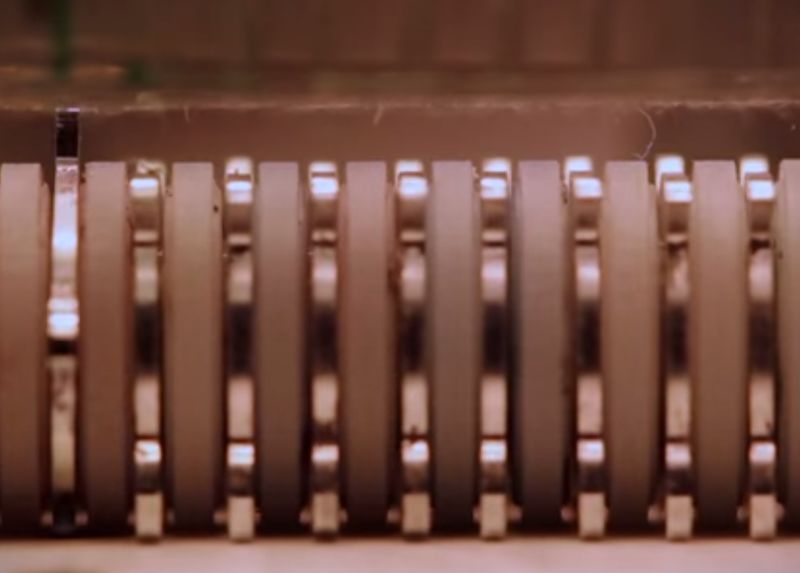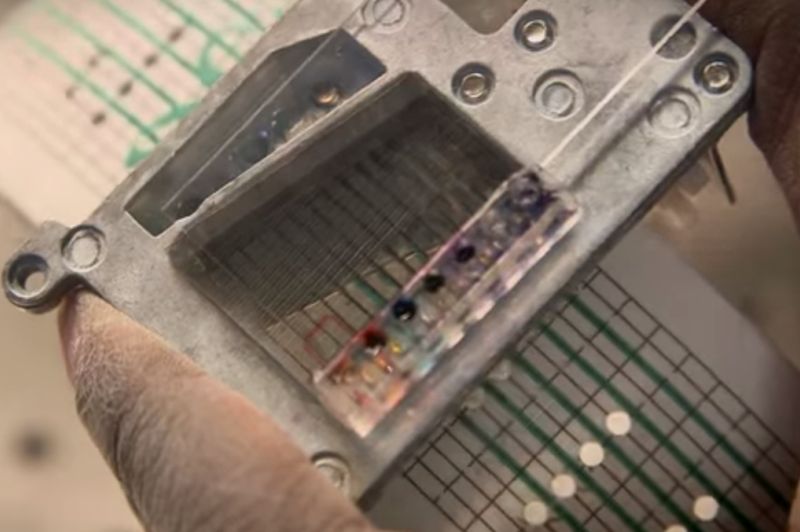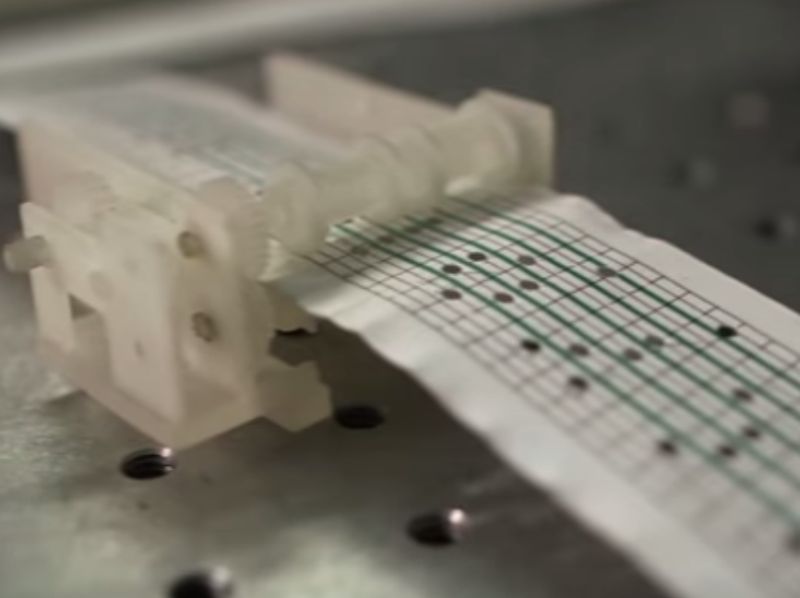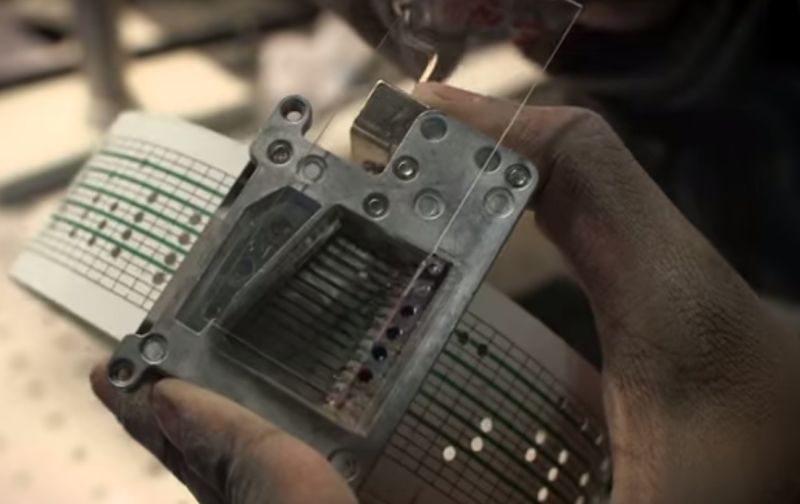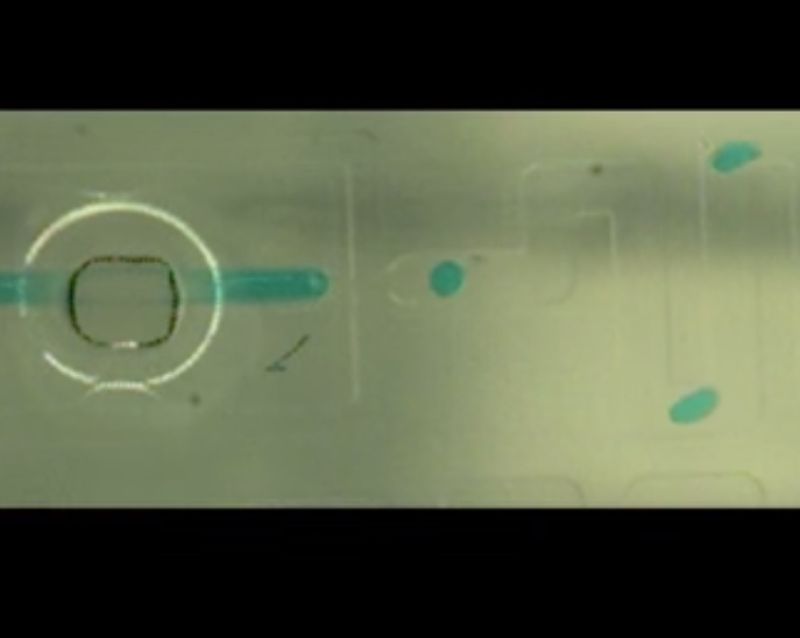Music Box Chemistry
A Stanford engineer repurposed a music box to function as a $5 chemistry set, with potentially enormous implications

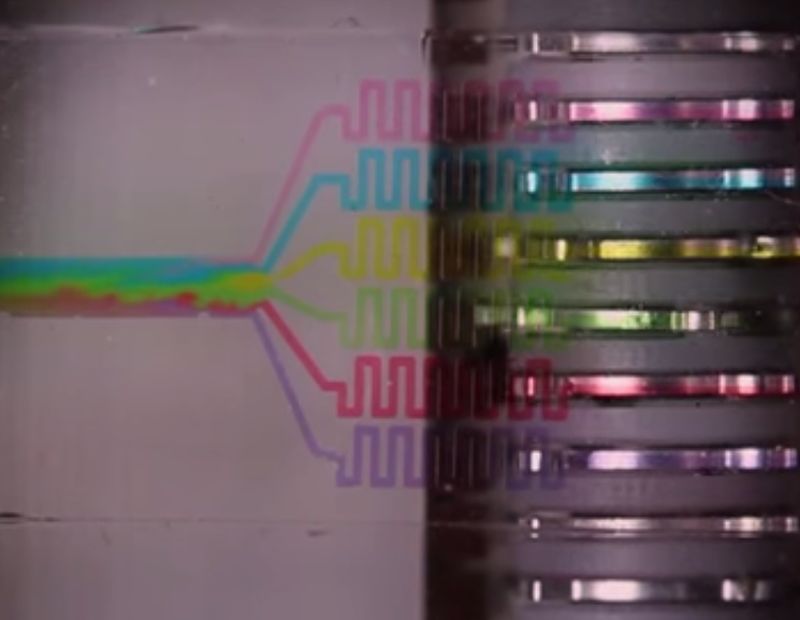
A Stanford bioengineer, Manu Prakash, has constructed an experimental chemistry set that melds an old fashioned music-box with cutting edge, fluid-carrying silicon chips with the potential to revolutionise science.
Like a normal music box, this device reads notes from a punch card - but instead of sound, the system is attached to a microfludic 'lab on a chip' that can mix up to 15 different chemical droplets together. It could allow scientists and engineers to collaborate and experiment with chemical 'recipes' all around the world, in particular in areas without access to full laboratory infrastructure.
Fludic chips are mass produced pieces of silicon that can accurately mix together different volumes of chemicals. As the music box turns, fluids from the chip are pushed forward, turning this $5 device into a new kind of control mechanism that allows for testing complex strategies but in an affordable and portable way. Every time a hole is punched in the card, a single droplet emerges from the system. The creators compare it to digitising the fluid process: using apps it is simple to trial any number of combinations, and that is what this machine may do for chemistry.
Although this is a very early proof-of-concept, it has the potential to be developed into something capable of running through even more complex processes while maintaining the robust and cheap model. But for now, Prakash's invention won him a $50,000 award from the Science Play and Research Kit Competition towards further research.
